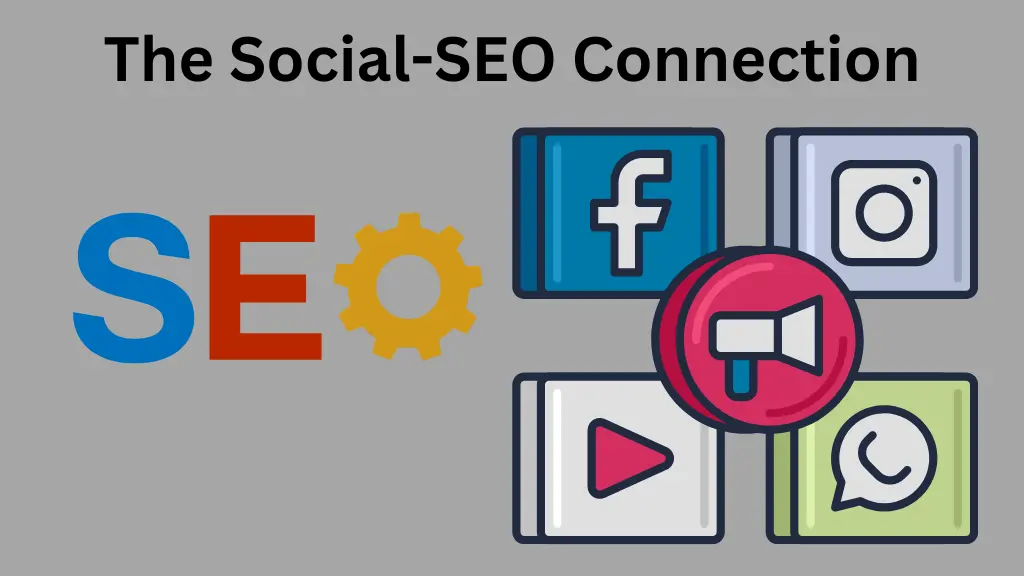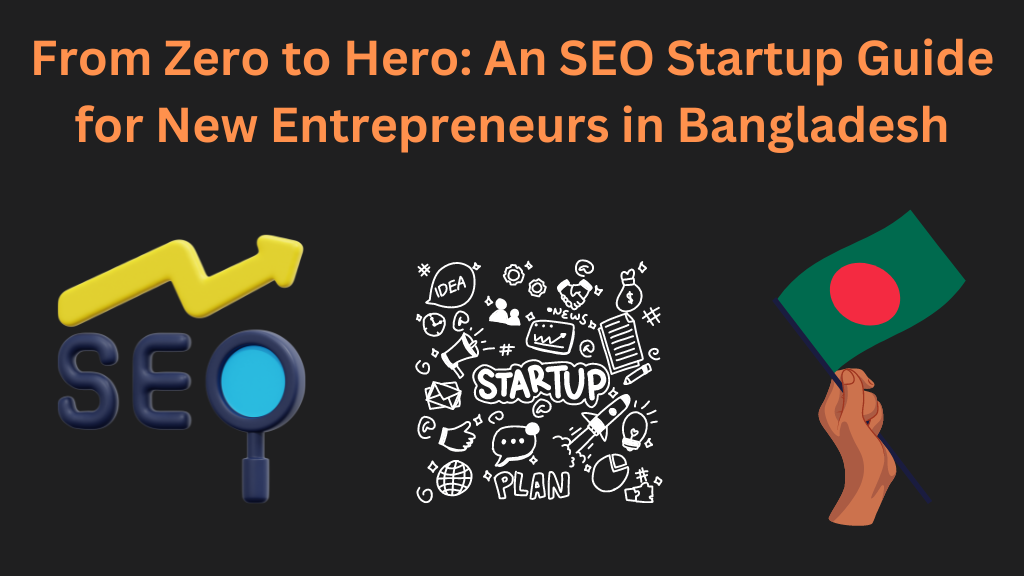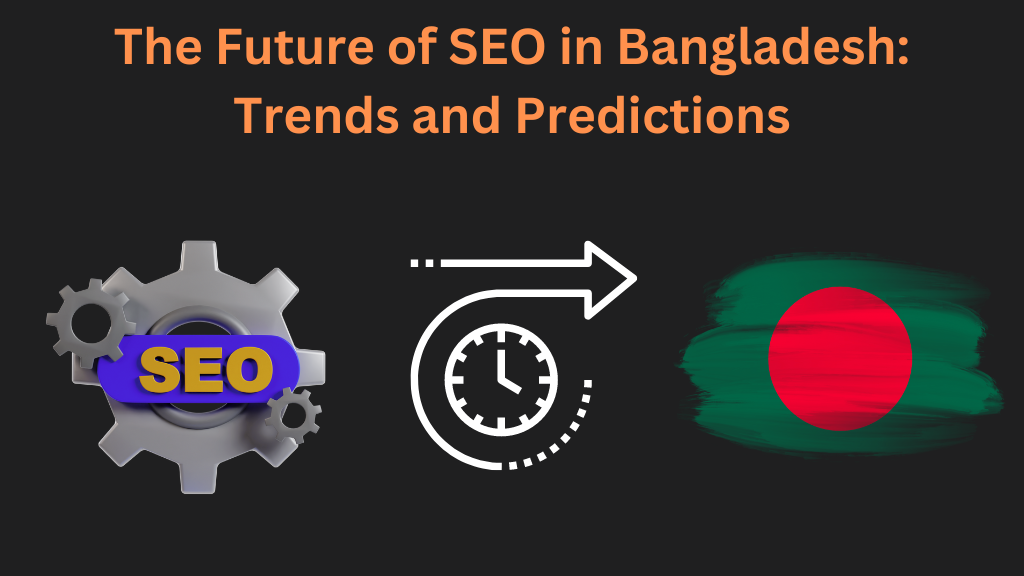Have you ever questioned how your social media footprint could be influencing your SEO results? In the intricate ballet of social interactions, there’s a powerful synergy that can catapult your online visibility to new heights. This blog post is your guide through the intertwined world of social media and SEO, revealing the potent relationship that can drive your brand’s search performance. By the final paragraph, you’ll have gained not just clarity but also practical tactics to harness this connection, ensuring your digital presence is both engaging and discoverable.

Table of Contents
ToggleDecoding the Social-SEO Connection
- Myth-busting: It’s important to clarify some common misconceptions about social media’s direct impact on SEO rankings. While there is no direct correlation between the number of likes or followers you have and your position in search results, social signals can still have a significant indirect impact. For example, social media can help you build brand awareness, increase website traffic, and generate backlinks, all of which can contribute to improved SEO.
- Understanding the indirect benefits: Social media signals can help you build brand awareness, increase website traffic, and generate backlinks. These factors can all contribute to improved SEO.
Building a Strong Social Foundation
- Choosing the right platforms: The first step to social media success is choosing the right platforms for your brand. Consider your target audience and the types of content they consume. For example, if you’re targeting B2B businesses, LinkedIn might be a good option. If you’re targeting younger consumers, you might want to focus on Instagram and TikTok.
- Creating a consistent brand voice and visual identity: Once you’ve chosen your platforms, it’s important to create a consistent brand voice and visual identity across all of them. This will help you build brand recognition and make it easier for people to remember you.
- Engaging with your audience: Don’t just broadcast your content to the void. Be sure to engage with your audience by responding to comments, participating in conversations, and running interactive campaigns. This will help you build relationships with your followers and make them more likely to share your content.
Content that Connects and Converts
- Crafting shareable content: In order to get the most out of social media, you need to create content that people want to share. This means understanding what your audience is interested in and creating content that is informative, entertaining, or inspiring.
- Optimizing content for social sharing: Once you’ve created great content, you need to make it easy for people to share it. Use catchy titles, compelling visuals, and relevant hashtags.
- The role of social content in driving traffic to your website: Social media is a great way to drive traffic back to your website. When you share your blog posts, articles, or other website content on social media, you’re giving people another way to find you.
Leveraging Social Media for Link Building
- Encouraging natural backlinks: One of the best ways to improve your SEO is to get backlinks from other websites. Social media can help you do this by encouraging people to share your content and link back to your website.
- Collaborating with influencers and brands: Collaborating with influencers and other brands in your niche is a great way to reach a wider audience and get more backlinks.
- Case studies: There are many case studies of successful social media campaigns that have resulted in significant SEO improvements. For example, one study found that a company that increased its social media engagement by 20% saw a 40% increase in organic traffic.
Social Media Profiles and SEO
- Optimizing your profiles: Your social media profiles are often one of the first things people see when they search for your brand online. So it’s important to optimize them for search engines by including relevant keywords in your profile information and bios.
- The importance of social media in local SEO: If you have a brick-and-mortar business, social media is an important part of your local SEO strategy. By claiming your local listings and filling out your profiles completely, you can make it easier for people to find you online.
- Integrating social profiles into your website: You can also integrate your social media profiles into your website by adding social media buttons and sharing widgets. This will make it easier for people to follow you on social media and share your content.
Tracking Your Social-SEO Impact
Key metrics to track:
While engagement, reach, and website clicks are crucial, a holistic view requires tracking a broader range of metrics across both social media and SEO. Here’s what to monitor:
Social Media Metrics:
- Engagement: Likes, comments, shares, saves, replies, mentions, brand sentiment analysis. Monitor engagement rate (total engagement divided by reach) to gauge audience interaction.
- Reach: Impressions, followers, profile visits, unique reach. Shows how many people see your content.
- Website Clicks: Track how many clicks your social media posts drive to your website. Use UTM parameters for specific campaigns.
- Conversions: Monitor leads generated, sales driven, or other desired actions from social media traffic.
SEO Metrics:
- Organic Traffic: Track the number of visitors coming to your website from search engines, focusing on relevant keywords.
- Keyword Rankings: Monitor your position in search results for keywords you’re targeting. Tools like Google Search Console and SEMrush provide insights.
- Backlinks: Track the number and quality of backlinks pointing to your website. High-quality backlinks from relevant sites boost SEO authority.
- Brand Mentions: Monitor online mentions of your brand, including social media and other websites, to gauge brand awareness and sentiment.
Adapting to Algorithm Changes
The digital landscape is constantly evolving, and both social media algorithms and Google’s search engine algorithm are no exception. Here’s how to stay ahead of the curve:
- Staying ahead of social media: Social media platforms are constantly tweaking their algorithms to prioritize content that users find engaging and valuable. Stay updated on these changes and adapt your content strategy accordingly. Focus on authenticity, user-generated content, and building real connections with your audience.
- Keeping up with Google: Google’s search algorithm updates can significantly impact your SEO performance. Stay informed about these updates and adjust your website content and optimization strategies to align with the latest best practices. Prioritize high-quality, informative content that provides value to your target audience.
Conclusion
The relationship between social media and SEO is no longer a one-way street. They are intertwined forces that, when harnessed effectively, can supercharge your online presence and engagement. By implementing the strategies outlined in this guide, you can build a strong foundation, create compelling content, and leverage the power of both social media and SEO to achieve your digital marketing goals.
Don’t wait, take action today!
Remember, success in online marketing requires constant learning and adaptation. Don’t be afraid to experiment and find what works best for your brand. Share your experiences and questions in the comments below!
Further Resources:
- Moz Beginner’s Guide to SEO: https://moz.com/beginners-guide-to-seo
- Sprout Social Social Media Trends Report: https://sproutsocial.com/insights/new-trends-report/
- Google Search Central Blog: https://blog.google/products/search/
Share this post with your network to help others unlock the power of the social-SEO connection!





